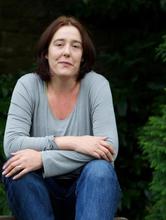
Creative Commons Zero (CC0) license
Photographer: Ed Gregory

Dr Elizabeth Fortin, PolicyBristol Coordinator for Social Sciences, Law, Arts and Humanities,
E.Fortin@bristol.ac.uk
Having spent my British Academy Postdoctoral Fellowship researching forms of governance that aspire to achieve that nebulous concept of ‘sustainability’ in relation to certain parts of the global agro-food/fuel system, it seemed fitting that the last event I attend in this capacity should be City University’s annual Food Symposium.
This year’s Symposium enabled Prof. Tim Lang, who is passing the baton of running City’s influential Food Centre to Prof. Corinna Hawkes, and a number of his colleagues, to reflect on the past 25 years of food policy. But it also provided an unprecedented opportunity to 40 audience members from both academia and civil society to imagine a more utopian future – not difficult in our troubled present – to table their vision of ‘How to do food policy better‘. We heard from a headteacher, a producer, a proud ‘Colombian peasant’, a farmer’s daughter, a student, the BBC chef of the year, a former advertiser, a community food network coordinator. We then went on to hear from a panel of those who have been working to enable such diverse voices to be heard both in relation to the research they have been undertaking or the programmes they have been endeavouring to implement. Continue reading










